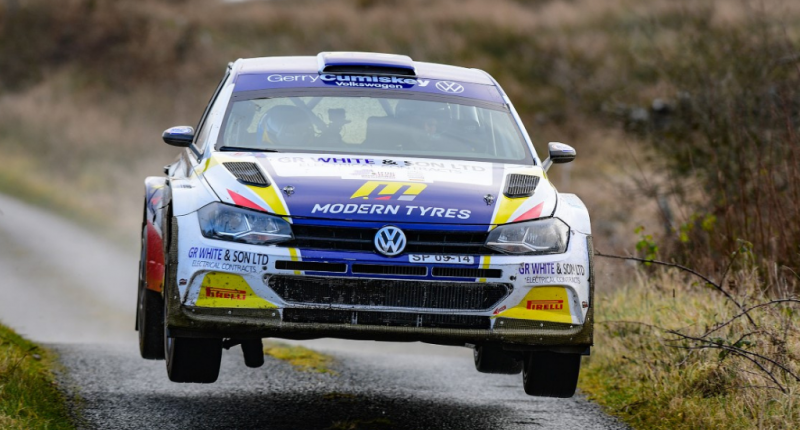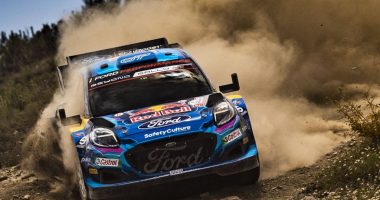Next February’s Galway International Rally is switching back to a two-day itineritinerary, organisers of the closed-road event have announced.
Sponsored once again by Corrib Oils – a deal that has been in place since 2016 – Irish rallying’s traditional curtain raiser will also be the opening round of the Irish Tarmac Rally Championship.
Having adopted a one-day format in 2019 and again last season, Galway Motor Club says running the event over a Saturday and Sunday has attracted “a lot of support from within the club”.
“The 2022 Corrib Oil Galway International Rally will take place on the 5 and 6 February and the action for the 15-stage, two-day event is centred on the town of Loughrea with short road sections between the stages,” read a club statement.
“It will, as usual, be the opening round of next season’s Irish Tarmac Rally Championship, and the second round of the Irish Tarmac Historic Rally Championship,” it added.
The Connacht Hotel has been confirmed as the rally’s new HQ, with Aiden Connolly and Gary Leonard taking on Clerk of the Course and deputy Clerk of the Course responsibilities respectively.
The past few years have been less than straightforward for the Galway International Rally, which has former Irish Tarmac champions Garry Jennings, Donagh Kelly, Eugene Donnelly and the late Frank Meagher among its winners.
Double World Rally champion Marcus Gronholm was also victorious at it back in 2007 during his M-Sport Ford days; he travelled across specially as the seat time proved particularly useful prior to Rally Ireland eight months later.
In November 2017, it was confirmed the West Coast meeting would not run in 2018, with a “lack of finances” cited as the key reason. It was the first time since 1971 that had happened.
The 2019 event was initially planned as a two-legged competition only for it to be scaled back to a one-day meeting. Comprising 10 special stages, the decision followed consultation with teams, drivers and co-drivers.
And on this the event’s fiftieth anniversary year, it had to be cancelled due to the COVID-19 pandemic.









